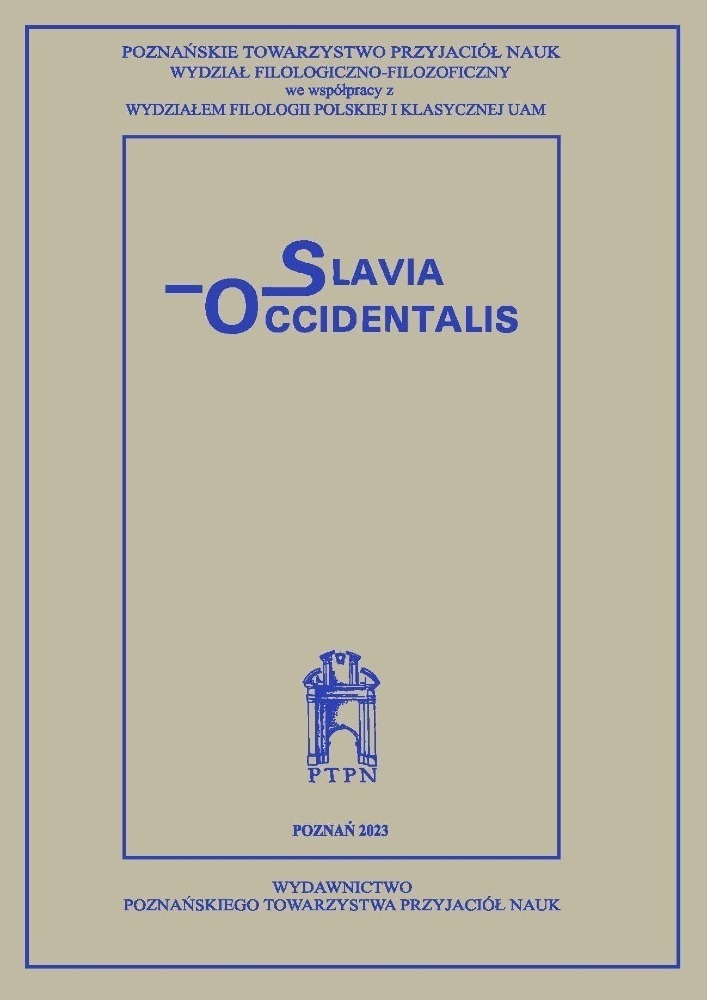Abstrakt
The article presents a portrait of one of the most important witnesses of the Holocaust in Hungary, the author of Emberszag and „the legend of Ernő Szép”, who would greet people by saying „I was Ernő Szép”. In his innovative work, the writer draws upon his skills as both reporter and observer. The way he can intricately interweave different episodes confirms his great artistic ability, but most of all it highlights the essential need to accord to the Jewish history all the respect it deserves. Szép achieves this through adopting an anthropocentric perspective – each scene focuses primarily on human emotions and habits, whilst the key context of all the events – the Shoah – is shifted to the background. Without overloading the text with too many dates or legal references, Szép pays careful attention to facts which gives readers a perfect opportunity to recreate the successive stages of the Jewish history in 1944 Budapest.
Bibliografia
Berkes T., Örkény groteszk pályafordulata, [w:] Magyar irodalom történetei. 1920-tól napjainkig.
A kötet szerkesztői M. Szegedy-Maszák, A. András, Budapest 2007, s. 564–572.
Csillagos házak. Emberek, Házak, Sorsok. Válogatta, szerkesztette és jegyzetekkel ellátta É. Nádor, Budapest 2015.
Fenyő M., Az elsodort ország. Naplójegyzetek 1944–1945-ből, Budapest 2014.
Fenyves K., Képzelt asszimiláció? Négy zsidó értelmeségi nemzedék önképe, Budapest 2010.
Gyarmati F., Napló 1935–1936, Budapest 2014.
M. Radnóti, Spienione niebo, wybór, posłowie i przypisy K. Sutarski, przeł. T. Nowak, F. Netz, K. Sutarski, T. Śliwiak, Kraków 1980.
L. Kassák, Kis könyv haldoklásunk emlékére, [w:] J. Darvas, T. Déry, L. Kassák, L. Nagy, Magyar írók tanúságtétele (1944–45), Budapest 1975, s. 345.
Kassák L., Kis könyv haldoklásunk emlékére. Naplófeljegyzések, Budapest 1945.
Kemény S., Napló 1942–1944, Budapest 1987.
Kertész I., Angielska flaga, przeł. E. Sobolewska, Warszawa 2004.
Komlós A., Magyar-zsidó szellemtörténet a reformkortól a holocaustig. Bevezetés a magyar-zsidóirodalomba, II kötet, Budapest 1997, s. 75–111.
Gy. Konrád, Elutazás és hazatérés, Budapest 2001.
Magyar írók tanúságtétele (1944–45), Budapest 1975.
Márai S., A teljes napló 1943–1944, Helikon 2006.
Márai S., Dziennik (fragmenty), przekład, opracowanie, przypisy i posłowie T. Worowska, Warszawa 2004.
Momro J., Literatura świadomości. Samuel Beckett – podmiot – negatywność, Kraków 2010.
Nagy L., Pincenapló, Budapest 1945.
Örkény I., Ötszemközt. Vitraz Tamás beszélgetése Örkény Istvánnal (részlet), [w:] I. Örkény, Lágerek népe. Emlékezők, Budapest 2000.
Pap K., Novellák I, Budapest 1999.
Piotrowiak-Junkiert K., Świadomość zwrócona przeciwko sobie samej. Imre Kertész wobec Zagłady, Warszawa 2014, s. 94–96.
Pomogáts B., Magyar irodalom vagy zsidó-magyar irodalom?, [w:] A határ és határolt. Töprengések a magyar-zsidó irodalom létformáiról. Szerk. P. Török, Budapest 1997.
Purcsi Barna Gy., Szép Ernő, Budapest 1984.
Radnóti M., Spienione niebo, wybór, posłowie i przypisy K. Sutarski, przeł. T. Nowak, F. Netz, K. Sutarski, T. Śliwiak, Kraków 1980.
Réz P., Bokáig pezsgeőben (hangos memoár). A beszélgetőtárs Parti Nagy Lajos, Budapest 2015.
Szép E., Emberszag, Budapest 2011.
Vas I., Összegyűjtött versek I. 1930–1945, Budapest 2000.
Licencja
Utwór dostępny jest na licencji Creative Commons Uznanie autorstwa – Użycie niekomercyjne – Bez utworów zależnych 4.0 Międzynarodowe.

